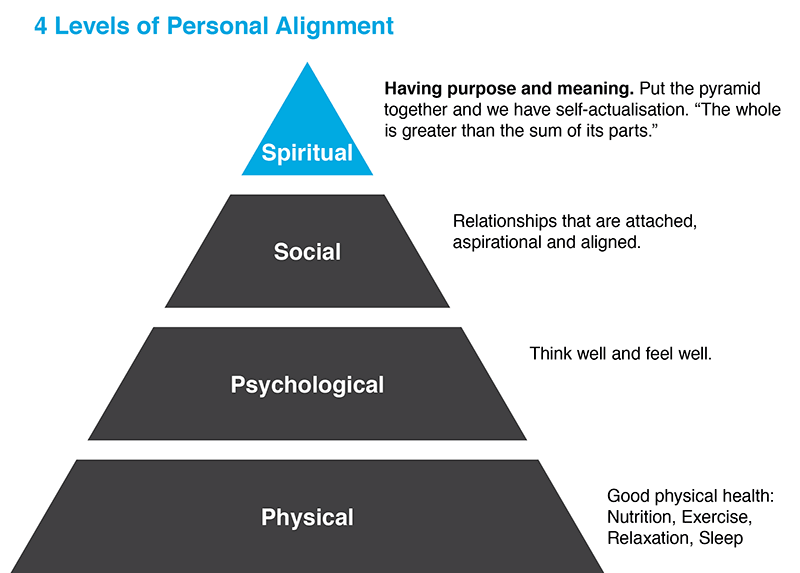Making Good Men Great
As a small boy I was, like most boys, intrigued by building blocks. I would spend hours with them, putting them into all sorts of configurations, stacking and re-stacking. But I soon discovered that the most stable one was what essentially looked like a pyramid. It was the easiest and most successful structure, stable and to my mind, it looked good.
Although I am writing essentially with men in mind, I want you to understand that the model applies as much to women as it does to men.
As a young student of psychology I ran across the work of Abraham Maslow, the originator of the idea that human beings had what he called a ‘hierarchy of needs.’ It just so happened that it looked like a pyramid. Maslow suggested that human beings required that their physiological needs came first. It was the very foundation. This was followed by what he called safety needs; security of body, employment, the family etc. The next level he described as ‘love and belonging’, followed by the idea of esteem; confidence, achievements and so on. At the top of the hierarchy was what Maslow called ‘self-actualisation.’ This contained ideas of morality, creativity, a lack of prejudices and an acceptance of facts. The idea of what self-actualisation is continues to be debated.
Given that I like constructing and deconstructing ideas, when I reviewed Maslow’s work, my own experiences and my work with my clients, I decided that Maslow’s hierarchy could do with a clean up. It is my view that human beings need to be responsive, they need to be emotionally and behaviourally flexible and we need to be resilient. The model I came up with to support those three goals consists of Four Levels that are in my view also hierarchically organised, just like Maslow’s. It is a little like climbing a ladder to the top.
So what does our pyramid for personal greatness look like?
Of the next few weeks I’ll work through each level in my blog.
So, lets start. At the bottom, as the foundation, is the physical aspect of our being. I’m using ‘being’ in a comprehensive way, that is to say, as a noun, like human being, and as an action word.
This foundation consists of four key behaviours: sleep, exercise, relaxation, and nutrition.
So why did I choose to nominate these particular behaviours as the physical foundation?
Let’s start with sleep. Research tells us that there are several important aspects to sleep that are fundamentally important to good physical and mental health. Good quality sleep, around seven to eight hours supports healthy brain function. Some research has identified sleep to be important in ‘detoxing the brain’. It is also important in the process of learning, creating new pathways and connections that assist in how we are going to function.
Good sleep quality promotes good physical health. Sleep is involved in the healing and repair of your heart and blood vessels. Ongoing sleep problems are linked to an increased risk of heart disease, kidney disease, high blood pressure, diabetes, and stroke.
Sleep problems also increase the risk of obesity and affects how your body reacts to insulin, the hormone that controls your blood glucose (sugar) level. Sleep deficiency results in a higher than normal blood sugar level, which may increase your risk for diabetes.
Sleep also supports healthy growth and development. Deep sleep triggers the body to release the hormone that promotes normal growth in children and teens. This hormone also boosts muscle mass and helps repair cells and tissues in children, teens, and adults. Sleep also plays a role in fertility.
Your immune system relies on sleep to stay healthy. This system defends your body against foreign or harmful substances. Ongoing sleep problems change the way in which your immune system responds such as fighting common infections.
It is also extremely important in the physical and emotional development of children. Sleep deprived children frequently have problems with physical growth and can exhibit behavioural and/or learning issues.
The bad news is that according to the World Health Organisation, the Western World is experiencing such significant problems that they have labeled sleep deprivation an epidemic. Work demands and the the 24/7 lifestyle has had a serious impact on our sleep behaviours. On top of that, the intrusiveness of electronic devices such as smart phones, tablets and notebooks have contributed significantly to the problem.
Stay tuned. In my next blog I’ll got through some Do’s and Don’t’s of Great Sleep.





Recent Comments